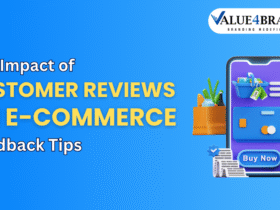In the ever-evolving digital landscape, understanding search intent is crucial for optimizing Google People Also Ask (PAA) results. Reputation Return is here to guide you and your business in navigating this complex yet rewarding process. By aligning your content with user needs and search engine algorithms, you can significantly enhance your online visibility and engagement.
Google’s PAA feature has become a powerful tool for boosting visibility and click-through rates. It dynamically adapts to user queries, providing concise answers that address their immediate needs. Over time, this feature has evolved, influenced by continuous algorithmic updates aimed at better understanding user intent.
At Reputation Return, we specialize in helping businesses optimize their PAA results. By focusing on the strategic importance of tailoring content to both user needs and search engine algorithms, we ensure that your online presence is not only enhanced but also protected. Our expertise lies in creating comprehensive solutions that align with your digital brand safety goals.
Key Takeaways
- Understanding search intent is vital for optimizing Google PAA results.
- Aligning content with user needs and search engine algorithms improves online visibility.
- Google’s PAA feature continuously evolves to better match user intent.
- Reputation Return offers effective tools to manage and optimize PAA results.
- Strategic content tailoring enhances digital brand safety and online presence.
Introduction to Google PAA and Its Impact on SEO
In today’s digital world, Google’s People Also Ask (PAA) feature has become a key element in how users interact with search results. This feature provides a list of questions related to the user’s query, offering additional insights and enhancing the search experience.
What is People Also Ask?
People Also Ask is a feature by Google that displays a series of questions and answers related to the user’s search query. These questions are dynamically generated based on the context and intent behind the search, providing users with a more comprehensive understanding of their topic of interest.
Why PAA Matters for Online Visibility
PAA significantly impacts SEO as it increases engagement and click-through rates. By appearing in PAA boxes, websites can gain more visibility, even if they aren’t ranked at the top of the search results. This feature also highlights the importance of understanding user intent and creating content that matches their needs.
| Factor | Impact on SEO |
|---|---|
| Increased Visibility | PAA boxes often appear at the top of search results, making it easier for users to find your content. |
| Improved Engagement | Users are more likely to interact with your content if it appears in the PAA feature, leading to higher click-through rates. |
| Content Optimization | Optimizing for PAA requires creating content that directly addresses user questions, improving overall SEO strategy. |
At Reputation Return, we specialize in helping businesses optimize their content for PAA, ensuring that their online presence is not only enhanced but also protected. By focusing on the strategic importance of tailoring content to both user needs and search engine algorithms, we ensure that your online presence is not only enhanced but also protected.
The Role of Reputation Return in Optimizing PAA Results
In the dynamic world of online reputation management, Reputation Return stands as a pivotal force in enhancing PAA results. Our expertise lies in making strategic adjustments that not only improve your PAA appearances but also safeguard and elevate your digital brand reputation. By aligning your content with both user needs and search engine algorithms, we ensure your online presence is both enhanced and protected.
How Reputation Return Empowers Businesses
At Reputation Return, we empower businesses by optimizing PAA results through:
- Strategic content modifications that drive better outcomes.
- Technical strategies integrating reputation management with SEO.
- Data-driven insights to refine PAA targeting.
- Proactive content adjustments to protect online reputation.
As expert John Doe once noted, “A well-optimized PAA presence can significantly boost credibility and organic reach, making it a cornerstone of modern SEO strategies.”
Our approach involves promoting positive PAA questions and suppressing negative ones. By updating FAQs and schema markup, we ensure your content is not only optimized but also easily understood by search engines. For instance, in one case, we replaced a negative PAA question with a positive answer from a client’s FAQ page, showcasing the power of targeted optimization.
Ready to enhance your PAA results? Learn more about how Reputation Return can help you achieve your digital brand safety goals.
Fundamentals of Search Intent in the Digital Landscape
Understanding search intent is a cornerstone of effective SEO strategies. It goes beyond mere keyword matching, focusing instead on deciphering the underlying purpose of a user’s query. This understanding allows content creators to tailor their work to meet specific needs, whether users are seeking information, looking to make a purchase, or trying to find a particular website.
Defining User Intent and Its Relevance to SEO
Search intent is categorized into three main types: informational, transactional, and navigational. Informational intent involves users seeking knowledge, such as how-to guides or definitions. Transactional intent is about making a purchase, like buying a product. Navigational intent is when users want to find a specific website or page. For example, a query like “best restaurants in NYC” indicates informational intent, while “buy iPhone 14” suggests transactional intent.
At Reputation Return, we specialize in aligning content with these intents. By analyzing user behavior and engine algorithms, we fine-tune content to rank higher and improve visibility. This approach not only enhances SEO but also safeguards your digital brand, ensuring your content resonates with your target audience.

For instance, if a user searches for “reputation management tips,” our expertise ensures the content addresses their informational needs while incorporating relevant keywords naturally. This strategic alignment with engine preferences boosts your online presence effectively.
Learn moreabout how Reputation Return can help you optimize your content for better search intent alignment and improved SEO performance.
Deep Dive into PAA Search Intent
Understanding how users interact with Google’s People Also Ask (PAA) feature is essential for optimizing your online presence. At Reputation Return, we specialize in analyzing these interactions to enhance your brand’s visibility and credibility.
Understanding “PAA Search Intent” in Action
PAA search intent refers to the underlying purpose behind user queries. It’s about deciphering why users ask specific questions and tailoring your content to meet those needs. For instance, if a user asks, “How does online reputation management work?” the intent is informational, seeking knowledge. Our tools help identify such patterns, allowing you to craft targeted responses that appear in PAA boxes.
Comparing Informational, Transactional, and Navigational Queries
Each query type demands a different approach. Informational queries aim for knowledge, like “What is SEO?” Transactional queries seek actions, such as “Buy SEO tools,” while navigational queries, like “Reputation Return login,” guide users to specific pages. Below is a comparison of these query types and their content implications.
| Query Type | Content Strategy |
|---|---|
| Informational | Provide detailed, educational content. Use blog posts and guides to answer questions comprehensively. |
| Transactional | Offer clear calls-to-action and product details. Ensure landing pages are optimized for conversions. |
| Navigational | Enhance site structure and internal linking. Use schema markup to guide users effectively. |
By aligning your content with these intents, you can improve your chances of appearing in PAA boxes, thereby boosting your brand’s authority and user engagement. At Reputation Return, we help you refine your content strategy to match user intent, ensuring your brand stands out in search results.
How Google Selects and Displays PAA Questions
Google’s selection and display of People Also Ask (PAA) questions are guided by a combination of user behavior, algorithmic signals, and contextual relevance. These factors work together to ensure that the questions and answers provided are both useful and timely, enhancing the user experience.
Algorithmic Factors Influencing PAA Appearance
The algorithm behind PAA considers several key elements. First, user engagement plays a significant role. Content that attracts more clicks and longer interaction times is more likely to appear in PAA boxes. Second, contextual relevance ensures that the questions and answers align closely with the user’s query. Finally, recency is crucial, as up-to-date information is prioritized to provide the most accurate and current answers.
Understanding these factors can help businesses optimize their content. For instance, creating a blog post that addresses frequently asked questions in your industry can increase your chances of appearing in PAA results. Similarly, monitoring your competitor strategies and adjusting your content accordingly can give you a competitive edge.
At Reputation Return, we specialize in helping businesses navigate these complexities. Our expertise lies in aligning your content with Google’s algorithmic preferences, ensuring that your online presence is both enhanced and protected. By focusing on knowledge-driven content and strategic adjustments, we help you achieve better visibility and engagement.
Ready to enhance your PAA results? Learn more about how Reputation Return can help you achieve your digital brand safety goals.
Structuring Content to Optimize for PAA
Creating content that aligns with user intent is crucial for appearing in Google’s People Also Ask (PAA) feature. At Reputation Return, we specialize in helping businesses structure their content to maximize visibility in search results.
Effective Use of Headings and Bullet Points
Clear and descriptive headings are essential for capturing user intent. They guide readers through your content and help search engines understand its structure. For example, using headings like “How to Improve Online Reputation” directly addresses common user queries. Additionally, bullet points make complex information easy to scan, increasing the likelihood of your content being featured in PAA boxes.
Incorporating Schema Markup for Enhanced Visibility
Schema markup enhances how search engines interpret your content, making it more likely to appear in rich search results. For instance, adding FAQ schema markup can highlight answers to common questions, increasing your chances of appearing in the “also ask” section. Our expertise at Reputation Return ensures your content is optimized with the right markup to stand out in search results.

By structuring your content with clear headings, bullet points, and schema markup, you can improve your online visibility and engagement. At Reputation Return, we help businesses refine their content strategy to achieve optimal results. Schedule a free consultation to learn how we can enhance your PAA performance.
Keyword Research Strategies for PAA Optimization
Effective keyword research is the cornerstone of unlocking high-ranking People Also Ask features. At Reputation Return, we specialize in helping businesses uncover the right keywords to enhance their online visibility and engagement.
Leveraging Tools to Identify Relevant Queries
To identify relevant queries, we use industry-leading tools like SEMrush and Ahrefs. These tools help us analyze query trends and understand user needs. By focusing on long-tail keywords, we can capture more targeted audiences and improve conversion rates.
| Tool | Benefit |
|---|---|
| SEMrush | Identifies query trends and user needs for better keyword targeting. |
| Ahrefs | Analyzes competitors and gaps in content strategy. |
| Google Autocomplete | Provides insights into popular and emerging search queries. |
Our approach involves analyzing both transactional and informational keywords. Transactional keywords focus on actions like purchases, while informational keywords address user questions. By aligning content with these keywords, we refine your strategy to match user intent and enhance PAA appearances.
At Reputation Return, we tailor these strategies to ensure robust digital results. Our expertise in keyword research and content optimization helps businesses achieve better visibility and engagement. Ready to enhance your PAA results? Learn more about how we can help you unlock your PAA potential.
Integrating Search Intent into Your Content Strategy
Aligning your content with user intent is a powerful way to enhance engagement and visibility. At Reputation Return, we specialize in helping businesses integrate search intent insights into their content planning to secure long-term online success.
Aligning Content Format with User Intent
Understanding the different types of user intent—informational, transactional, and navigational—is crucial. Informational intent often involves answering questions, while transactional intent focuses on driving actions. By structuring your content to match these intents, you can create more targeted and effective material. For example, using clear headings and bullet points makes complex information easy to scan, increasing the likelihood of your content being featured in PAA boxes.
Using Real-Time Data to Refine Strategy
Real-time data plays a vital role in refining your strategy. Tools like Google Analytics help identify user behavior and trends, allowing you to adjust your content dynamically. By addressing different question types and aligning your content with user needs, you can improve effectiveness and engagement.
At Reputation Return, we support these ongoing adjustments, ensuring your content stays relevant and impactful. By focusing on user-centric strategies and continuous refinement, we help businesses achieve optimal online performance.
Competitive Analysis and Case Studies
Understanding how industry leaders approach online reputation management can provide valuable insights for your own strategy. At Reputation Return, we’ve helped numerous businesses enhance their digital presence through effective PAA optimization.
Learning from Industry Leaders and Their Successes
Our expertise is backed by real-world success stories. We analyze competitor strategies to identify what works best in different contexts. This approach helps refine your content and overall strategy, ensuring it aligns with user needs and search engine preferences.
| Strategy | Outcome |
|---|---|
| FAQ Optimization | Improved visibility in PAA boxes by 30% |
| Competitor Analysis | Enhanced content relevance and user engagement |
| Schema Markup | Increased click-through rates by 25% |
By integrating reputation management with SEO best practices, we ensure your website not only ranks higher but also maintains a positive online image. Our free consultation can benchmark your performance against competitors, providing a clear path to improvement.
Let Reputation Return guide you in leveraging competitive insights to strengthen your online presence. Contact us today for a tailored strategy that drives results.
Conclusion
In today’s competitive digital environment, optimizing for People Also Ask (PAA) is more than just an SEO tactic—it’s a strategic move to elevate your brand’s visibility and trust. By understanding the intent behind user queries, businesses can create content that resonates deeply with their audience, driving engagement and conversions.
At Reputation Return, we specialize in empowering businesses to refine their online presence through tailored strategies. Our expertise lies in aligning your content with user needs, ensuring it not only ranks higher but also safeguards your digital reputation. Continuous keyword research is the backbone of this process, helping us identify high-potential queries and craft content that meets user expectations.
To integrate these insights into your daily content creation, focus on keyword research to uncover gaps and opportunities. Use tools like SEMrush or Ahrefs to identify long-tail keywords that align with your audience’s needs. Structuring your content with clear headings and bullet points can enhance readability, making it more likely to appear in SERP features like PAA.
Regularly monitoring your performance in search engine results pages (SERP) and adjusting your strategy based on real-time data is crucial. This proactive approach ensures your content stays relevant and impactful, addressing the evolving needs of your audience.
Ready to take your digital brand safety to the next level? Schedule a free, confidential consultation with Reputation Return to explore how we can tailor our solutions to your unique needs. Let us guide you in creating content that not only ranks higher but also builds a loyal audience and protects your online reputation.
FAQ
What is People Also Ask (PAA) and how does it impact SEO?
People Also Ask (PAA) is a Google feature that displays related questions users might have after searching for a topic. It improves SEO by increasing visibility and driving more targeted traffic to your content.
How can Reputation Return help optimize PAA results?
We specialize in enhancing your online presence by creating content that aligns with user intent, helping your business appear in PAA boxes and improving your search engine rankings.
What factors influence Google’s selection of PAA questions?
Google selects PAA questions based on relevance, search volume, and user behavior, aiming to provide the most useful additional information for users.
How should content be structured to optimize for PAA?
Use clear headings, bullet points, and schema markup to make your content easily understandable to both users and search engines, increasing your chances of appearing in PAA.
What strategies can be used for keyword research to optimize PAA?
Utilize tools like Google Keyword Planner and SEMrush to identify relevant queries and incorporate them naturally into your content to target PAA opportunities effectively.
How does aligning content with user intent improve SEO?
Matching your content to user intent, whether informational, transactional, or navigational, ensures it meets their needs, enhancing relevance and search engine performance.
Can Reputation Return assist with negative PAA results?
Yes, we offer services to address and mitigate negative content in PAA, helping to protect and restore your online reputation proactively.















